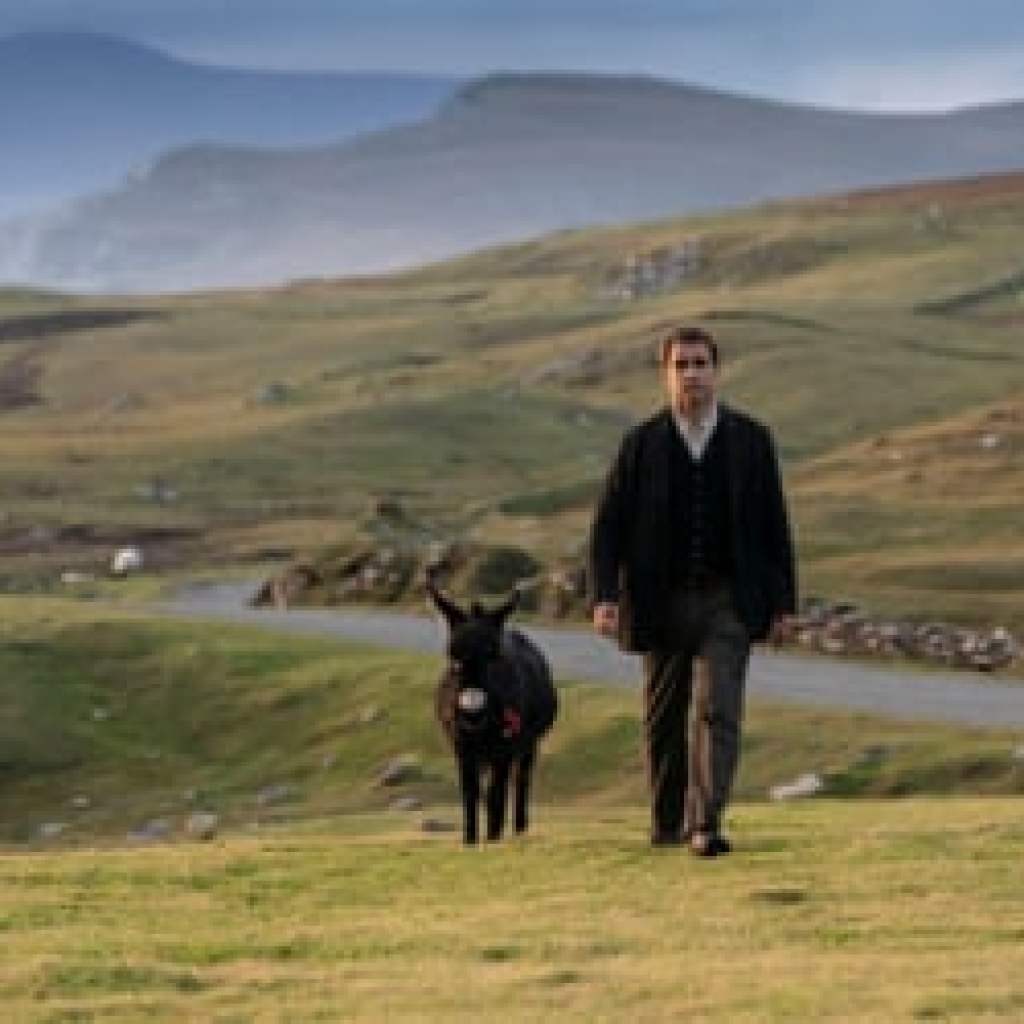Sentiment and understatement meet in this wonderfully melancholy (finish-of-) everyday living drama, primarily based on Akira Kurosawa’s reduced-important 1952 gem, Ikiru. Elegantly directed by South African film-maker Oliver Hermanus (who helmed the 2019 adaptation of André Carl van der Merwe’s autobiographical Moffie) and boasting deeply impacting performances from nationwide treasure Bill Nighy and rising star Aimee Lou Wood (typical of the hit Netflix series Sexual intercourse Education), this deceptively mild 50s-set movie addresses weighty matters of daily life and dying with a profitable simplicity that is tough to resist.
Nighy brings his most austere deal with to the function of Mr Williams, a softly spoken bureaucrat (“a decent type, if a minor on the frosty side”) working in London’s County Hall, wherever piles of paperwork accumulate in teetering towers of inaction and obfuscation. “We can keep it here for now,” claims Williams of a very well-introduced petition by a team of regional women of all ages from Chester Avenue to create a enjoy park on a bombsite – a file that has currently done the rounds of umpteen other departments (parks setting up cleansing and sewage) ahead of returning to his desk, exactly where it will sit and assemble dust. “It’ll do no damage.”
This lonely widower (Nighy describes his character as currently being “institutionalised by grief”) lives at house with his frustrated son and tetchy daughter-in-law, whom he overhears arguing about their long-awaited inheritance and their need to escape “this stifling house”. When his physician provides him just a limited time to reside, Williams feels a determined urge to make the most of whatsoever time he has remaining, to “live a little”, even nevertheless he doesn’t know how. A temporary flit to a coastal vacation resort presents scant reward, in spite of the best attempts of Tom Burke’s rakish Mr Sutherland, the area roué powering such “smutty and trivial” productions as Shocking Stockings, who demonstrates his new acquaintance the nightlife.
Back again in central London, Williams odds upon Overlook Margaret Harris (Wooden), a previous County Corridor personnel who has ditched the grind for a new job at a Lyons Corner Household. “To be alive like that for one working day!” Williams says of the youthfully spirited Margaret, who secretly applied to get in touch with him Mr Zombie (“dead, but not dead”), a nickname he finds wholly proper. Slowly, as he mourns for his have shed youth, Williams commences to question no matter whether that unbuilt playground might not keep the vital to redemption.
Screenwriter Kazuo Ishiguro, whose novels The Continues to be of the Working day and Hardly ever Allow Me Go have formed the basis of pretty wonderful movies, brings a clean standpoint to the themes of Kurosawa’s classic (alone impressed by Tolstoy’s The Death of Ivan Ilyich), though retaining a important structural unit that lets the 3rd act to loop back again on by itself in hauntingly meditative vogue. That sense of cyclical duality is mirrored visually as opening newsreel footage of 1950s London blends seamlessly into elegantly choreographed frames that recall the long term-retro sense of Terry Gilliam’s Brazil, just before offering way to dreamier hues, as cinematographer Jamie Ramsay charts Mr Williams’s research for his missing self.
At the coronary heart of that search are Williams’s discussions with Skip Harris, and Nighy and Wood do a great task of capturing each the well mannered awkwardness and platonic intimacy of their interactions. There’s genuine pleasure to be located in Wood’s vast-eyed reaction to the prospect of a knickerbocker glory at Fortnum’s, and palpable despair in the symphony of micro-expressions that flit across Nighy’s facial area in the doctor’s place of work, when all he can say is “Quite”.
Emilie Levienaise-Farrouch’s stunning rating shifts from the spiralling-piano-arpeggios of place of work existence to the more ghostly introspection of flashback scenes (black-and-white photographs turning to color) and lower strings that counterpoint the external gaiety of burlesque circus revelry. In the meantime, the well-known Japanese ballad Gondola no Uta that played a vital part in Ikiru is changed with the very well-picked out traditional Scottish track The Rowan Tree, minimizing Williams to hopeless mournful silence when he first sings it in a boozy dive, then later resurfacing as a note of hope and reconciliation – a sublime moment in which the recurrent overhead shots that beforehand belittled him quickly feel to permit his soul to soar.
